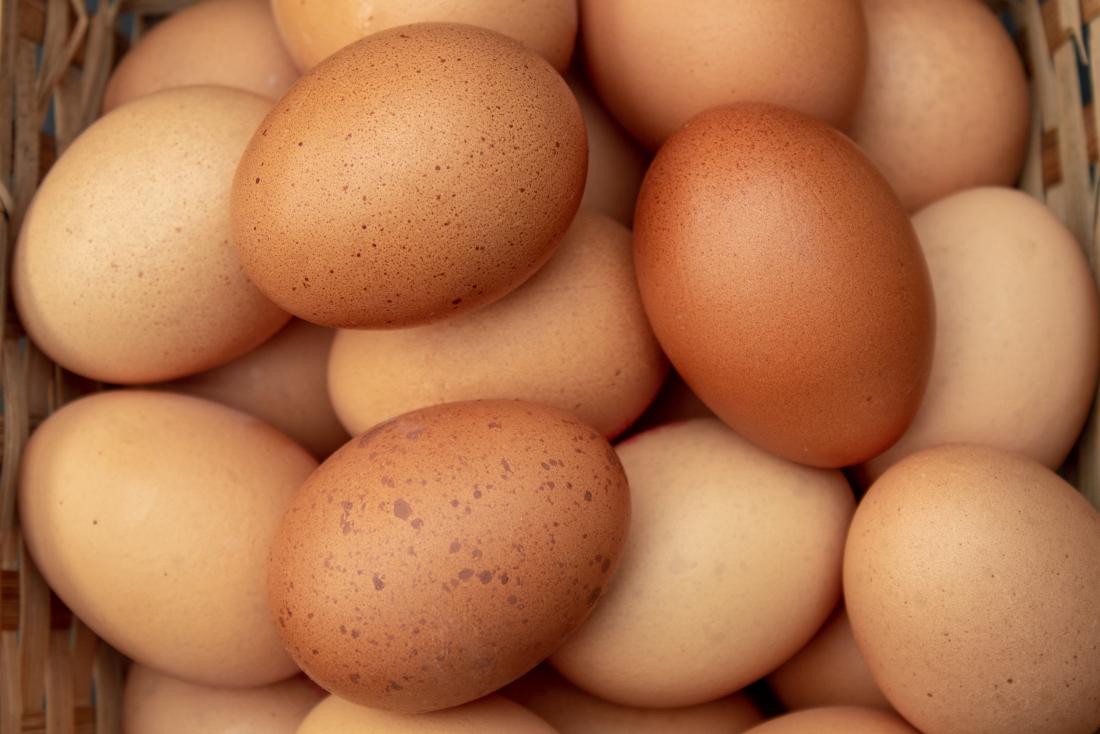It's really important to pay close attention to what you eat, especially when there's a food safety warning out there. Recently, a big egg recall has been announced, and honestly, it's something everyone should be aware of. This isn't just a small issue; it directly impacts your health and the food in your kitchen, so you know, it's a big deal. We're talking about a situation where knowing the right steps can really protect you and your loved ones from getting sick.
This particular recall, so it seems, involves a rather large number of eggs, which makes it a widespread concern for many households. The Food and Drug Administration, or FDA, has been very clear about the potential risks involved, highlighting the need for immediate action from consumers. It's not just about tossing out a carton of eggs; it's about understanding the serious health implications that could come with consuming potentially contaminated products, which, you know, nobody wants.
We're here to give you all the key details you need to protect yourself, so you can make sure your family stays healthy. This guide will walk you through what happened, what to look for, and what to do next, basically covering all your bases. It's really about giving you the peace of mind that comes from being informed and taking the right precautions, which, honestly, is pretty much everything when it comes to food safety.
Table of Contents
- Understanding the Current Egg Recall
- Identifying Recalled Eggs in Your Home
- Health Risks and Symptoms of Salmonella
- What to Do If You Have Recalled Eggs
- Frequently Asked Questions About the Egg Recall
Understanding the Current Egg Recall
There's been a pretty significant announcement about an egg recall, and it's something everyone should really be aware of. This isn't just a small-scale issue; it involves a large number of eggs that might be in people's homes right now. The main goal here is to give you the clear facts, so you can, you know, protect yourself and your family from any potential health issues. It's basically about getting the word out so everyone can act quickly.
Who Is Involved: August Egg Company
The company at the center of this particular egg recall is August Egg Company, which is based out of Hilmar, California. They've actually taken the step of voluntarily recalling a good number of their shell eggs. This kind of voluntary action, you know, shows they're working with the authorities to address a serious public health concern. It's really about making sure that potentially unsafe products are pulled from circulation as fast as possible, which is a good thing.
August Egg Company, it seems, has been quite proactive in issuing this recall. They've identified a specific batch of products that were processed at their California facility. This means, basically, that the problem is tied to a particular production line or method at that one location. Their quick action, you know, is aimed at limiting the spread of any potential illness and keeping consumers safe, which is their responsibility.
The Scale of the Recall: Millions of Eggs
When we talk about the size of this recall, it's honestly quite substantial. We're looking at a staggering 1.7 million dozen shell eggs that have been pulled from the market. To put that in perspective, that's over 20 million individual eggs, which is a really huge number, you know? This volume means that the eggs were likely distributed very widely, reaching many different grocery customers across various regions, so it's not just a local thing.
The sheer quantity of eggs involved really underscores the potential for widespread exposure to contamination. This isn't just a few cartons here and there; it's a massive amount of food product that could have reached countless homes. So, you know, the larger the recall, the more important it is for everyone to check their refrigerators, just to be on the safe side, because it could affect anyone.
Why the Recall: Salmonella Concerns
The main reason behind this particular egg recall is the potential for contamination with Salmonella. Salmonella, for those who might not know, is a type of bacteria that can cause a foodborne illness. It's a pretty serious concern, actually, because it can lead to some really unpleasant symptoms and, in rare instances, even very severe outcomes. The FDA has, you know, given this recall its most serious safety designation, which tells you how important it is.
This bacteria, Salmonella, can actually cause a range of issues, from mild discomfort to something much more dangerous. The presence of Salmonella in food products like eggs is a big deal because eggs are consumed so widely and often in ways that don't always involve thorough cooking, like in sauces or dressings. So, you know, that's why the FDA takes these things so seriously, to prevent people from getting sick.
Identifying Recalled Eggs in Your Home
One of the most pressing questions people have when an egg recall is announced is, "How do I know if my eggs are affected?" It's a very valid concern, and thankfully, there are specific steps you can take to check. The good news is, the recalled eggs are no longer being sold in stores, which is a relief. However, the FDA is still quite worried that these eggs might still be sitting in consumers' homes, which is why this information is so vital, you know?
Checking Your Refrigerator
Per the guidance from the FDA, the very first thing you should do is take a look inside your refrigerator. You're specifically checking for the recalled brown cage eggs. This means you'll want to carefully examine the carton, looking for any specific brand names, codes, or dates that might be associated with the recall. It's a bit like a treasure hunt, but for safety, you know?
It's really important to be thorough when you check. Don't just glance at the carton; actually pick it up and look at all the sides. Sometimes the identifying information, like a plant code or a packing date, is printed in a less obvious spot. So, you know, take your time with it to make sure you don't miss anything important, because that little detail could make all the difference.
Affected Products and Retailers
The August Egg Company has actually issued a voluntary recall for 29 different brown egg products. That's quite a number of variations, which means it's not just one specific type of egg. These products, it seems, were distributed to nine different retailers. This wide distribution means that the recalled eggs could have ended up in various grocery stores across several states, making it a bit more complicated to track down, you know?
Specifically, eggs sold in three states have been recalled due to this possible Salmonella contamination. While the provided text doesn't list the exact states, this information tells us that the problem is not isolated to just one area. If you live in or recently visited a state where eggs from August Egg Company are typically sold, it's really, really important to double-check your eggs, just to be absolutely sure, because you know, safety first.
Health Risks and Symptoms of Salmonella
Understanding the potential health risks associated with Salmonella is, honestly, a key part of why these egg recalls are so serious. It's not just about feeling a little unwell; for some people, it can be quite dangerous. Knowing what to look for can help you decide if you need to seek medical attention, which is, you know, pretty important for your well-being.
What Is Salmonella?
Salmonella is a type of bacteria that can live in the intestines of animals and humans and is passed through feces. People can get infected with Salmonella by eating foods contaminated with animal feces, which is, you know, not a pleasant thought. Eggs can become contaminated with Salmonella either internally, from an infected hen, or externally, from contact with contaminated droppings.
This bacteria can cause a foodborne illness called salmonellosis. It's a common cause of food poisoning, and while many people recover without specific treatment, it can be particularly harsh for others. So, you know, it's a bacteria that really needs to be taken seriously, especially when it's found in something as common as eggs.
Recognizing the Symptoms
If you've consumed eggs that were part of the recall and you start feeling unwell, it's really important to know what symptoms to watch out for. The common signs of a Salmonella infection usually include fever, diarrhea, and abdominal cramps. These symptoms typically appear within 12 to 72 hours after eating the contaminated food, which is, you know, a fairly quick onset.
Sometimes, the illness can be more severe, especially for certain groups of people. Things like nausea, vomiting, and chills can also be part of the picture. If you experience any of these symptoms after eating eggs, particularly if they are severe or persistent, it's really, really important to contact a healthcare provider, just to be safe, because your health is, you know, everything.
Serious Outcomes and Fatalities
While most people recover from Salmonella infection, it's very important to know that it can lead to more serious health problems, and in some rare cases, even death. The provided information actually states that at least one person has died and 134 people have been infected from an outbreak of Salmonella that's been linked to a recall of more than 20 million eggs. This is, you know, a truly tragic outcome and highlights the severe risks involved.
Certain groups are particularly vulnerable to severe Salmonella infections. This includes young children, older adults, and people with weakened immune systems. For these individuals, the illness can be much more serious, potentially leading to hospitalization or other complications. So, you know, that's why these recalls are handled with such urgency and why public awareness is so absolutely vital.
What to Do If You Have Recalled Eggs
If, after checking your refrigerator, you discover that you have any of the recalled brown cage eggs, the very first thing you need to do is not panic, but act decisively. It's really, really important that you do not eat them, under any circumstances. Even if they look fine or smell fine, the risk of Salmonella contamination is still there, and that's just not a chance you want to take, you know?
The best course of action is to dispose of them immediately. You can do this by throwing them in a sealed bag and putting them in the trash. It's also a good idea to wash your hands thoroughly with soap and water after handling the eggs, just to prevent any potential spread of bacteria. You might also consider cleaning any surfaces that the eggs might have touched, like your refrigerator shelves or countertops, to be extra safe, which is, you know, a good practice anyway.
Some retailers might offer a refund or exchange for recalled products, so it could be worth checking with the store where you bought them. Even if you don't have the receipt, sometimes they'll still accommodate you for a recall. The main thing, however, is to get those eggs out of your home and out of your kitchen as quickly as possible. Learn more about food safety guidelines on our site, and link to this page for specific recall updates.
Frequently Asked Questions About the Egg Recall
When news of an egg recall breaks, it's totally normal to have a lot of questions. Here are some of the common ones people are asking, so you know, hopefully, this helps clear things up for you.
What company is recalling eggs?
The company that has issued this voluntary egg recall is August Egg Company, which is based in Hilmar, California. They're the ones who processed the eggs at their California plant, so, you know, that's the name to look out for.
What are the symptoms of Salmonella from eggs?
If you get sick from Salmonella in eggs, you might experience symptoms like fever, diarrhea, and abdominal cramps. These usually show up within 12 to 72 hours after you've eaten the contaminated food. It's really important to pay attention to these signs, because, you know, early detection can make a difference.
How do I know if my eggs are part of the recall?
To find out if your eggs are part of the recall, you should check your refrigerator for brown cage eggs from August Egg Company. The recalled eggs are no longer in stores, but the FDA is concerned they may still be in consumers' homes. Look for specific product codes or dates on the carton, and, you know, if you're unsure, it's always better to be safe than sorry.



Detail Author:
- Name : Maye Lockman
- Username : schumm.alessandra
- Email : odie80@huels.com
- Birthdate : 1976-02-21
- Address : 1464 Evalyn Drive Suite 274 Mrazton, DC 13589
- Phone : (754) 264-6339
- Company : Hintz, Sanford and Friesen
- Job : Telephone Station Installer and Repairer
- Bio : Aperiam ea labore totam sit magni omnis. Unde aut asperiores est doloribus qui et et. Quae unde nihil in voluptatum atque eveniet quo.
Socials
linkedin:
- url : https://linkedin.com/in/hassan.deckow
- username : hassan.deckow
- bio : Eligendi enim modi totam id itaque omnis natus.
- followers : 3257
- following : 1898
instagram:
- url : https://instagram.com/hassan.deckow
- username : hassan.deckow
- bio : Illo blanditiis nisi repellendus voluptatem sit. Et eligendi rerum rerum sed dolores et.
- followers : 4617
- following : 615
tiktok:
- url : https://tiktok.com/@hassan6343
- username : hassan6343
- bio : Quia quia est rerum impedit eius.
- followers : 5056
- following : 2380
twitter:
- url : https://twitter.com/hassandeckow
- username : hassandeckow
- bio : Facilis architecto quas est voluptas. Ipsa tempora est ullam qui eos. Enim omnis quae et non est numquam. Repellendus possimus natus facere explicabo dolor.
- followers : 6136
- following : 1489
facebook:
- url : https://facebook.com/deckow1979
- username : deckow1979
- bio : Eaque tempora sit non totam expedita illum. Id reiciendis rerum omnis culpa.
- followers : 6339
- following : 380

